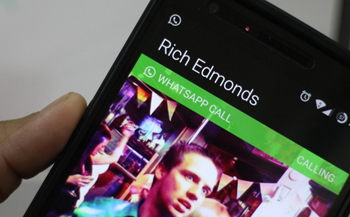Apr 1: Earlier this month, WhatApp had started rolling out voice calling feature for everyone. However, the activation didn"t really go through for several users and it looked like the invites had been disabled. However, today, users in India have started receiving the WhatsApp voice feature without the need for any invite.
 If you"ve still haven"t got the WhatApp voice feature activated , then here"s what you need to do. Firstly, download version 2.11.528 from the Play Store or version 2.11.531 from the WhatsApp website. Once you have the latest version, voice-calling ability can be activated by receiving a call from someone whose voice-calling is already activated.
If you"ve still haven"t got the WhatApp voice feature activated , then here"s what you need to do. Firstly, download version 2.11.528 from the Play Store or version 2.11.531 from the WhatsApp website. Once you have the latest version, voice-calling ability can be activated by receiving a call from someone whose voice-calling is already activated.
The WhatsApp voice calling feature is available only for Android, and is expected to make its way to iOS users soon. At the Facebook F8 conference held recently, WhatsApp cofounder Brian Acton said that the messaging service is preparing to bring the voice calling feature to iOS users in the coming weeks. It is known that some tech enthusiasts have already found out ways to activate voice calling on iPhones. However, that requires jail breaking the iPhone.
Interestingly, WhatsApp calling seems to be now open to all in India, just when reports about Trai seeking views to prepare regulatory framework for Internet-based calling and messaging applications or over-the-top (OTT) players have started surfacing online.
Those curious about the voice-calling feature for WhatsApp, here"s our first impressions.





Comments
Add new comment